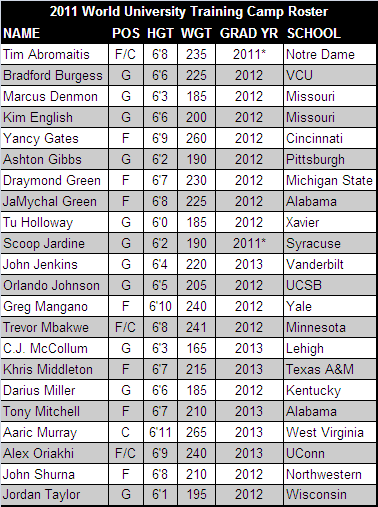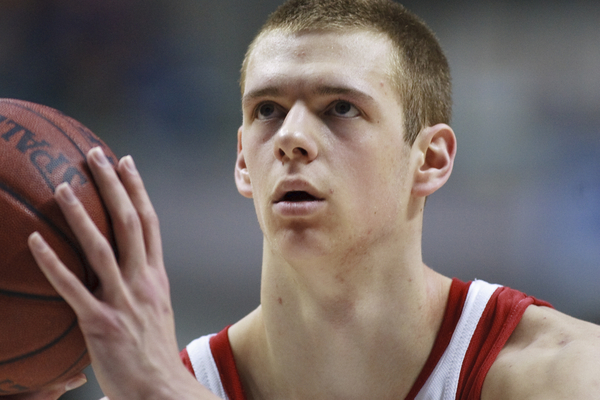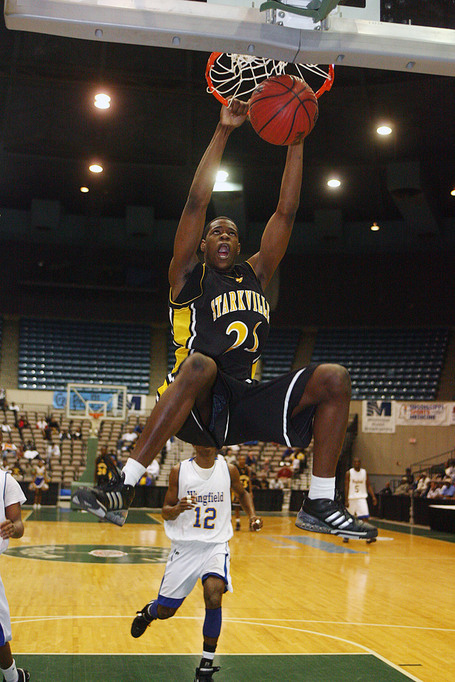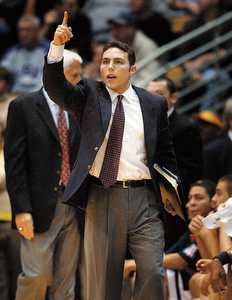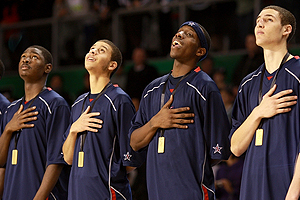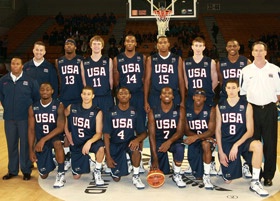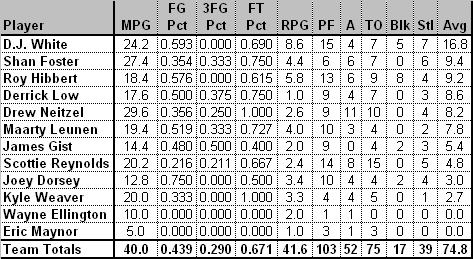Team USA Finishes Fifth at World University Games: Notes On Player Performances
Posted by rtmsf on August 22nd, 2011Team USA came out of the World University Games in Shenzhen, China, with its pride intact after sporting a 7-1 overall record, but because of an untimely loss over the weekend in the quarterfinal round versus Lithuania, they will leave Asia without a medal. The twelve-man roster comprised of some of the best returning players in the college game finished fifth in the tournament despite sporting a 28.2 PPG scoring margin over its eight opponents. The Americans did not earn a chance to play the top two finishers — Serbia (gold) and Canada (silver) — although the team that knocked them out of contention, Lithuania, ultimately took home the bronze. We’ve already established the weak predictive power of the WUG experience (e.g., 2009-10 NPOY Evan Turner hardly played in the 2009 WUG), but we still thought it would be worth a quick look to see which players rose to the top and which did not during the last two weeks of action.
Some of our thoughts on player performances:
The All-American Backcourt Was Solid, If Not Spectacular. Simply glancing at the roster going into the World University Games, the two names that immediately jumped out as the best players were in the backcourt — Pitt’s Ashton Gibbs and Vanderbilt’s John Jenkins. Both players will be on the short list next season as NPOY types who should also land on several of the major All-American teams. In China, they both played the most minutes and shot the ball considerably more than the rest of their teammates. Jenkins alone attempted 57 threes, more shots than anyone but Gibbs (73) on the entire team. They both made enough shots to keep defenses honest (Gibbs: 46.6%; Jenkins: 42.4%), and were automatic (90%+) from the line, but on a team sorely lacking in the point guard department, neither player truly stepped up and separated himself in that manner (only 28 assists between them, one for every combined 12 minutes they were on the floor). In the loss against Lithuania, the two guards combined to shoot 4-13 from behind the arc and dished out only one assist (versus 5 TOs). Clearly this team could have used a better floor leader.
Trevor Mbakwe Was a Monster. If we had to pick one player who came out of the WUG experience with the most hype for the upcoming season, it has to be Minnesota forward Trevor Mbakwe. In just under 20 minutes per contest, Mbakwe averaged a near-dub-dub of 11.4 PPG and 9.4 RPG (or, 23/19 per 40 minutes!). What’s more impressive is that international players simply could not handle his quick feet balanced by a bulky frame, bullying his way to the foul line 61 times, or 7.6 times per game. He only was able to convert 57.4% of those attempts, but his 60.9% field goal percentage on the interior more than made up for it. Mbakwe averaged a double-double in the Big Ten last year, but his maturity and continued improvement may have him on target for a DeJuan Blair type of senior season in 2011-12.































